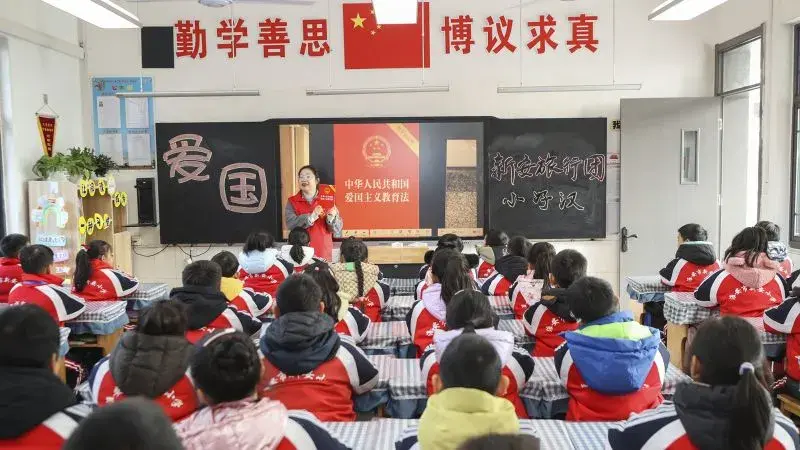Cross-posted from: https://beehaw.org/post/10848936
The new law follows past efforts, such as smartphone apps for people to “learn about new socialist thought” - including a lesson on how “Grandpa Xi led us into the new era” - and for adults to read up and take quizzes on Xi’s latest theories.
The latter was deemed a success in terms of downloads – as all 90 million Communist Party members were ordered to use it alongside many employees of state-owned enterprises.
China has other legislation aimed at stamping out unpatriotic behavior, such as banning the desecration of national flags and insults to soldiers. And under Xi in recent years, any dissent in China – even in the form of online comments that don’t toe the party line – is enough to land people in trouble with authorities.
But the latest law appears to hint at the introduction of penalties for acts not already punishable under existing laws, according to Ye Ruiping, senior law lecturer from Victoria University of Wellington in New Zealand.
For example, it states that behaviors “advocating, glorifying and denying acts of invasion, wars and massacres” and “damaging patriotic education facilities” could be subject to punishments, she said.



That’s not about the social credit system though, that’s about the general censorship and surveillance apparatus. Which although robust and invasive is quite fragmented, there is no central database. local branches of law enforcement or internal intelligence or a million other parts of china’s own alphabet soup, manage, collect and use surveillance data, some terrifyingly effectively, some pathetically. Some not at all.
China is a big country with a lot of tasks being delegated to lower authorities, (and delegated from them to even lower authorities). Anytime I see someone talk as if the Chinese government is a monolithic entity it makes me want to pull my hair out. 90% of the time when someone talks about some new law in Beijing being created, they’re misrepresenting the reality, which is generally that the central government has directed provincial and local governments to pass their own laws and implement their own policies to address what ever Beijing has talked about.
For references about social credit in particular here you go:
https://jamestown.org/program/far-from-a-panopticon-social-credit-focuses-on-legal-violations/
https://logicmag.io/china/the-messy-truth-about-social-credit/